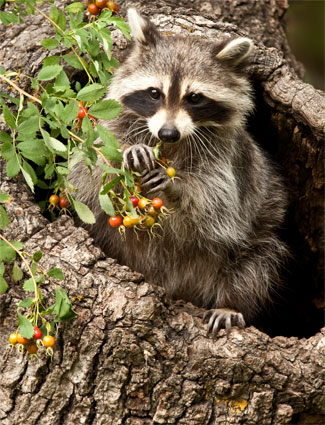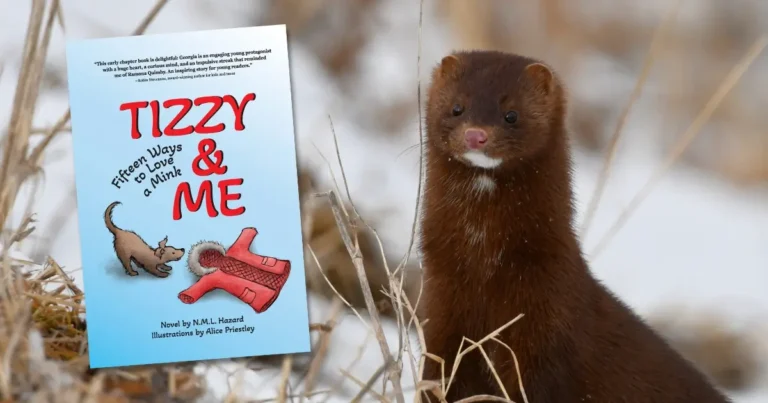
Here are some quick tips:
1. The birthing season for wildlife is at its peak between April and July. Females will seek out covered shelter in attics, chimneys and under steps as a safe spot to have their young, away from predators, when their newborn babies are most vulnerable.
2. Don’t panic if an animal is taking up residence near your home. If you find a wildlife family living under your deck or on your roof, remember, this is a temporary situation. The best thing you can do is to leave the animals alone. Once the babies are weaned, and are able to travel with their mother, they will naturally relocate themselves.
3. Keep wild families together. Orphans are created when people trap and relocate a nursing mother, block her access to an attic or remove her babies in the hopes that she will take them some place else.
4. Lights confuse migrating birds. The spring migration period is Feb. 15 through May 31. Please turn off unnecessary lights between dusk and dawn. If inside lights are needed, please close the blinds or drapes. Ask your workplace to do this too!
5. Remove all attractants for wildlife and crush and cut up recycables. Old wood piles, unsecured garbage and pet food left outside will easily bring wild visitors into your yard. Tidy up these areas and make sure all of your recyclables are rinsed and clean too. Another suggestion: after washing your tin cans to recycle, squash the top opening closed; many skunks get their heads trapped in them when sniffing for food. Cut up 6 pack rings and frappucino/slurpy dome lids for the same reason. (Thanks Marcy P!)
6. Respect and don’t touch! Teach children to respect wildlife and to keep a distance. All children AND adults should avoid personal contact with wild animals – and that includes feeding them! Habituating wildlife to humans is a serious concern because if animals lose their natural fear of humans they can often become “problem” animals. Sadly, animals who are considered a “nuisance” are killed by conservation officers or animal control. As the saying goes, “a fed animal is a dead animal”.
7. Don’t jump to conclusions. If you see a baby animal in the wild, don’t phone the rehab centre just yet. While it may appear as if the adults have abandoned their young, in reality, the adults may be close by. Never take wild baby animal home and try to them raise them yourself. If you have any concerns about an abandoned or injured animal, please contact your local wildlife rehabilitation centre or humane society for advice.
8. Curious cats can cause trouble. Keep cats indoors during the spring as they can pose a risk to baby and fledgling birds who are not yet able to fly.
A note about “wildlife removal companies”:
Beware of companies and professionals who claim to offer humane wildlife removal or “pest control”.
Many of these companies may use lethal traps, poison or live-traps – only to have the animal later euthanized. Be sure that you do your research first!
Also, once you have an animal removed, you need to ensure the problem of how the animal got there in the first place is solved – seal up holes, cracks and other entrances and remove all attractants to prevent this situation from happening again.
The best thing you can do if there is an animal living near your home is to leave the animal or family alone, once the babies are old enough, they will naturally move on (and you’ll save yourself the cost of calling the extermination company too!)
